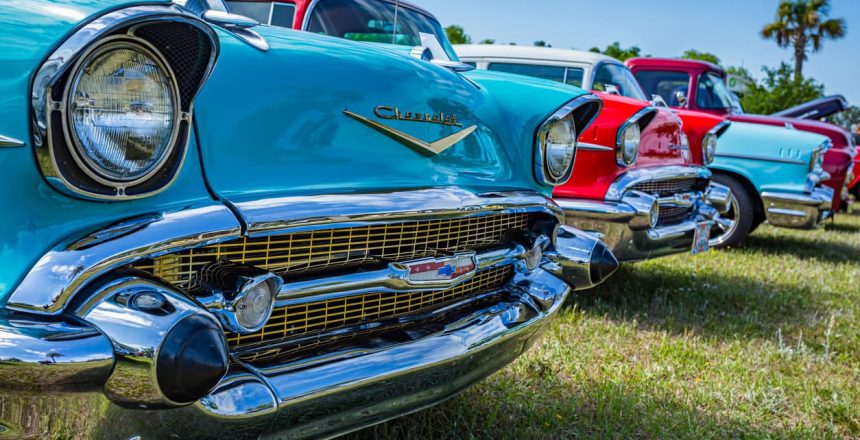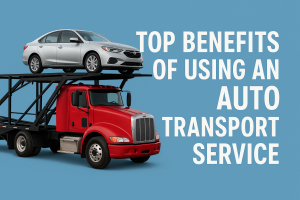You should learn facts about the classic car industry and ownership before purchasing one of these rare vehicles.
Key takeaways
- Classic cars are appealing for many reasons
- Caring for these vehicles adds to their cost
- Maintenance and repairs are always a concern
- Shipping the car can reduce your expenses
Owning a classic car is a dream for many. These vintage vehicles offer style unseen in modern counterparts. Many classic cars also have powerful engines that thrill drivers and serve up nostalgia for individuals who grew up in their era.
However, understand that owning a classic car isn’t as simple as affording the initial purchase; maintenance, safety, storage, and transportation are key concerns. Protecting the vehicle is essential; you won’t want to deal with replacing components, especially as the classic-car market grows to unprecedented levels.
Here’s a look at some surprising classic-car facts you should know before investing in one of these vehicles.
1. The market is growing
Statista estimates suggest the global classic-car market will grow from about $30.9 billion in 2020 to $43.4 billion by 2024. There could be numerous reasons for this growth; increasing value as these vehicles become scarce is likely a significant driver.
Vintage automobiles are particularly popular in Europe and the U.S. They are considered luxury items that collectors often compete for on the open market. They trigger odd bidding wars that can increase values. The classic-car market will likely grow in the future, as original owners get older and can’t care for them any longer.
2. Most owners are male Baby Boomers
There are currently about five million classic cars in the U.S., and Baby Boomers own most of them. Most individuals who own classic vehicles were born between 1946 and 1964, and older members of this generation are starting to sell their cars or gift them to family members.
It’s worth noting that 97% of all classic-car owners are male, and 95% of them own a home and have a household income over $140,000. The fact that people who own and are passionate about these cars have money is why the market will likely grow.
3. Their value doesn’t always increase
If you’re looking to invest in a classic car, understand that it won’t always work out as you intend. Sure, in 2018, a 1963 Ferrari 250 GTO sold privately for $70 million, and a 1962 version of the car sold at auction for $48.4 million. Don’t expect your vehicle to appreciate enormously in value once you purchase it.
For instance, the 1982 Rolls-Royce Silver Spirit was one of the most luxurious cars of all time when released, and it’s still a very nice automobile. However, in good condition, these vehicles are currently valued at just $8,800 (although one sold recently for double that amount).
It’s not a given the classic car you’re purchasing will hold its value; many variables are at play. Research the vehicle thoroughly to ensure you’re paying a fair price for it.
4. Finding tires is challenging
Before buying any classic car, understand that finding tires that will fit isn’t as straightforward as it sounds.
Purchasing tires for a modern vehicle is simple. Every manufacturer carries multiple sizes, and one is sure to fit your car. It isn’t the same for older automobiles, though; tires used to come straight from the carmaker. Most of these cars run on bias-ply tires rather than modern radial tires, which is another issue you’ll need to consider.
The gist: bias-ply tires don’t provide the same grip as radial tires, especially in wet weather. However, you can’t swap the bias-ply tires out for radials because the additional grip could put too much strain on the vehicle’s suspension and chassis. This extra grip could also cause the wheel to crack or break completely. Your options include upgrading the classic car’s suspension and wheels or finding a specialty manufacturer that recreates classic tires.
5. Car shipping can reduce wear and damage
Because classic cars, along with their tires and other components, are so valuable, limiting how often you drive them is advisable. Driving only locally, and under ideal weather conditions, can limit any damage you do to your vehicle and keep its value intact.
When you have to transport a classic car over a long distance, a vehicle-shipping service might help. These vendors offer enclosed shipping options that will ensure your classic car is fully protected from road debris and the elements, minimizing the chances of any damage occurring.
You don’t want to jeopardize the value of your classic car, especially if you know it could increase in value, and taking advantage of a car-shipping service provider is the best transportation option
How auto-transport brokers work
When you search online, you’ll come across various car-shipping vendors, but it’s vital to narrow your search to providers with enclosed trailers. These carriers will provide the additional protection your classic car needs because nothing would be worse than damaging your rare automobile, just as the market ascends to unparalleled heights.
Mercury Auto Transport is a car-shipping broker that connects you with the ideal carrier to move your classic car from point A to point B. We’ll provide an insured and vetted vendor who will protect your classic car during transportation. Contact Mercury Auto Transport today to learn more or receive your free quote.






